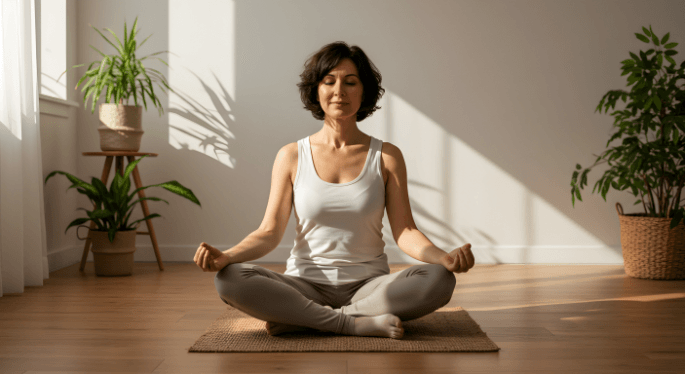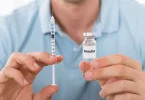Mental health treatment is changing. In residential care, the goal is shifting from just stabilizing a person to helping them truly thrive. While traditional methods are crucial, there’s a growing focus on ‘whole-person’ wellness.
Holistic therapy is an approach that supports your mind, body, and spirit simultaneously. Think of it as moving beyond just talking about your challenges to actively engaging with them through practices like mindful movement, creative arts, and time in nature.
In this article, we’ll explore the role of holistic therapies in building the resilience needed for sustainable recovery.
Contents
What Are Holistic Therapies?
Holistic therapy is built on a simple but powerful idea: you are more than your diagnosis. In practice, this is a diverse and engaging toolkit designed to help you reconnect with yourself. Here are some of the key approaches you might find in a modern residential program:
- Somatic therapies: These practices, like yoga or tai chi, recognize that stress and trauma don’t just live in our minds; they get stored in our bodies. Somatic therapies help you release that physical tension and recalibrate your nervous system.
- Creative arts therapies: Sometimes words aren’t enough. Art, music, or drama therapy provides a new language for expression, allowing you to process complex feelings in a safe and often surprising way.
- Mindfulness and meditation: This is all about training your attention. Through guided meditation and breathwork, you learn to observe your thoughts and feelings, building a crucial skill for managing anxiety and stress.
- Nature-based therapies: Ever feel calm after a walk in the woods? That’s not a coincidence. Ecotherapy or horticultural therapy harnesses nature’s proven healing power to reduce stress and improve mood.
- Animal-assisted therapy: Interacting with gentle, trained animals, like therapy dogs or horses, can lower blood pressure, ease anxiety, and provide non-judgmental companionship that fosters social connection.
At a residential care center like Jackson House, these complementary modalities provide practical tools that enhance conventional therapies, creating a truly personalized path to recovery. The safety and effectiveness of this approach depend on choosing the right practitioner, whose expertise is paramount to a successful healing journey.
Why Holistic Therapies Work
Holistic therapies succeed where traditional approaches often fall short by addressing the complete picture of mental health. These therapies recognize that trauma and stress live in the body. Somatic practices help release physical tension and calm the nervous system, creating a foundation for emotional safety.
Holistic approaches shift individuals from passive recipients to active participants in their healing, building confidence and self-trust that supports lasting recovery. By integrating mind and body, holistic therapies create a comprehensive path to sustainable wellness.
How Holistic Therapies Work
Holistic therapies complement medication management and other treatment services by addressing the whole person within a supportive environment. These approaches offer distinct benefits for the following psychiatric conditions and mood disorders, enhancing traditional mental health services in both inpatient treatment and outpatient care settings.
1. Anxiety and mood disorders
Mindfulness and breathwork offer immediate relief from racing thoughts and physical tension. As such, they are valuable in supporting traditional treatment for mood disorders.
2. Trauma and personality disorders
Somatic approaches offer particularly valuable support for conditions such as borderline personality disorder. These techniques allow for the processing of experiences through gentle movement and body awareness, without relying solely on words.
3. Depression and behavioral health
Movement-based therapies help combat the inertia common in depression. They encourage engagement through physical activity and mindful awareness, even when energy is low.
4. Addiction treatment
These therapies support recovery by providing healthy alternatives to substance use. They build essential skills for natural mood regulation and stress management, reducing reliance on substances.
5. Chronic stress
Regular practice builds resilience over time, helping the nervous system become less reactive to stressors. This creates lasting change in how challenges are perceived and handled.
The consistent thread across all these applications is the development of practical, accessible tools that support recovery in tangible ways.
Implementing Holistic Therapies in Practice
Integrating holistic treatment approaches into a residential treatment program requires thoughtful planning to address each resident’s mental health condition effectively. Here’s how these methods create comprehensive mental health care:
1. Structured daily programming
A typical day in our residential treatment facility begins with gentle yoga or meditation to establish a positive foundation. Throughout the day, residents engage in various therapeutic activities including recreational therapy, art sessions, and mindfulness walks. Evenings focus on relaxation techniques that support restorative sleep, creating a balanced daily rhythm that promotes stability.
2. Personalized treatment plans
Each resident’s program is customized to their specific needs within our residential treatment program. While one individual might benefit most from somatic therapies for trauma recovery, another may focus on breathwork for anxiety management.
3. Therapeutic environment design
Our facility is intentionally designed to support healing, featuring dedicated spaces for meditation, outdoor areas for nature therapy, and studios for creative work. These environments enhance traditional treatment approaches by providing ideal settings for practicing new coping skills.
4. Integrated support systems
Family involvement and support groups are woven into the therapeutic process, creating a network of care that extends beyond individual therapy sessions. Group-based holistic activities, such as mindfulness practices or creative arts, help build community and reduce residents’ feelings of isolation.
5. Practical skill development
The ultimate goal of our mental health care is to equip residents with practical tools for life after treatment. From breathing exercises to stress management techniques learned through recreational therapy, residents build a personal toolkit that supports long-term wellness and sustainable recovery.
Through a comprehensive implementation strategy, healing can extend beyond scheduled therapy sessions. The result is a seamless integration of wellness into all aspects of daily life within our supportive community.
Bottom Line
Holistic therapies provide essential tools that recognize true healing involving the whole person. These therapies should be integrated into the existing treatment plan in a coordinated way. Since every person is different, the approaches need to be tailored to individual needs, preferences, and physical abilities to make sure they are truly helpful for everyone.







